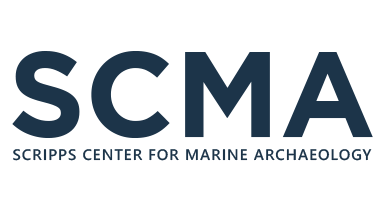PEOPLE
Photo credit: Erik Jepsen/UC San Diego Publications
LEADERSHIP
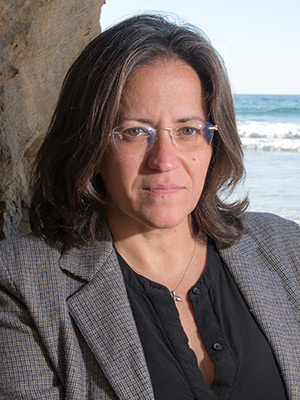
Isabel Rivera-Collazo
Isabel Rivera-Collazo is SCMA’s Director and an Associate Professor on Biological, Ecological and Human Adaptations to Climate Change at UC San Diego’s Department of Anthropology and Scripps Institution of Oceanography. Professor Rivera-Collazo is an environmental archaeologist specializing in geoarchaeology, archaeomalacology, coastal and marine processes, maritime culture and climate change, with regional interests in Puerto Rico, the Caribbean Basin and the Neotropics (pan-Caribbean region); Israel and the eastern Mediterranean. Her research focuses on the effect that human activity has over island ecosystems through time, as well as how people have responded to climate and environmental change in the past. Dr. Rivera-Collazo’s work focuses on resilience and adaptation, investigating what decisions enhance or reduce adaptive success. Taking an applied approach, she also works with local communities in the quest to understand the current and expected impacts of climate change, including threats to coastal heritage. Dr. Isabel Rivera-Collazo has a MSc degree on Palaeoecology of Human Societies and a PhD on Environmental Archaeology both from the Institute of Archaeology, University College London. She is also Research Fellow of the Center of Tropical Ecology and Conservation, and the Laboratory of Environmental Archaeology at the University of Puerto Rico, Rio Piedras Campus.
Email | Website
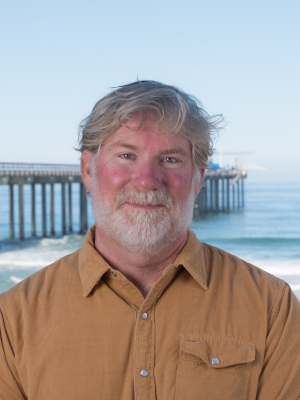
Christian McDonald
Christian McDonald is a Safety Officer in the Scripps Scientific Diving Program. He manages the oldest and one of the largest and most active scientific diving programs in the United States. McDonald’s interest in marine science began as an undergraduate at UC Santa Cruz while studying kelp forest ecological dynamics both in Central California and, later, on the remote island of Shemya, in the outer Aleutian chain, southwest of Alaska. Upon graduation from UC Santa Cruz with a B.S. in Marine Biology, McDonald spent five years working in and exploring diverse locations around Antarctica as a scientific diver, natural history cinematographer, commercial diver, and senior marine technician aboard NSF-supported, polar-classed research vessels. In addition to the scientific diving training, support, and oversight provided to the Scripps research community, McDonald has served as chair of NSF’s Office of Polar Programs Diving Control Board and is a Past-President of the American Academy of Underwater Sciences.
Email | Website
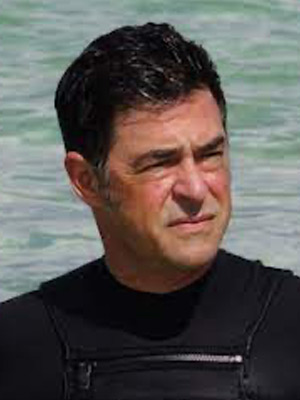
Dominique Rissolo
Dominique Rissolo holds a Ph.D. in Anthropology from UC Riverside, and did his undergraduate work at San Diego State University. He is a former Executive Director of the Waitt Institute, and co-directed of the National Geographic Society-Waitt Foundation Grants Program and the Rapid Ocean Conservation (ROC) Grants Program on behalf of the Waitt Foundation. The Waitt Institute funded a major expedition and exploration of the Mary Celestia shipwreck in Bermuda waters in 2011 (with Rissolo participating in that expedition). Rissolo subsequently joined the Qualcomm Institute at UC San Diego as Special Projects Coordinator for CHEI and CISA3, with a major focus on working with graduate and undergraduate students on cultural heritage-related projects. Rissolo has been involved in a number of marine archaeology projects including deep-water remote sensing surveys. As an archaeologist, Rissolo’s research interests include the development of ancient maritime trade networks along the Yucatan coast. His work on the Yucatan Peninsula also focused on ancient Maya and Paleoamerican cave and cenote use as well as coastal and near-coastal settlement patterns and ecosystems. Throughout his fieldwork, Rissolo has been active in local initiatives and the development of sustainable cultural heritage preservation strategies. Rissolo also serves on the NOAA Ocean Exploration Advisory Board.
Email | Website
UC FACULTY
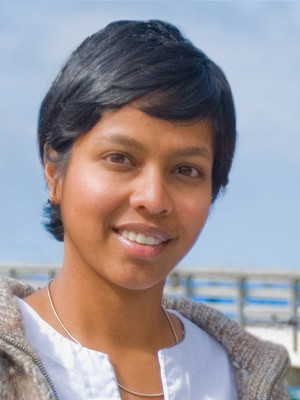
Lihini Aluwihare
Lihini Aluwihare, a chemical oceanographer, was born in Sri Lanka and lived in Zambia and England before moving to the United States for college and post-graduate studies. Arriving at Scripps Institution of Oceanography at UC San Diego in 2000, she studies the cycling of carbon and nitrogen in the oceans using light isotope tools and organic matter chemical characterization. As a marine geochemist, her work revolves around trying to read the messages encoded in molecules that maintain microbial life, facilitate ecosystem interactions, and contribute to long-term carbon and nutrient storage. While her research focuses mainly on naturally occurring molecules, her tools also enable her to examine the human fingerprint in aquatic environments through detection of anthropogenic organic compounds. A common theme that underpins her work is her commitment to developing new analytical tools and research frameworks to examine a particular scientific question from a different perspective. As a result of her unique path into oceanography and academia generally, Aluwihare is strongly committed to diversifying the faculty and creating a more equitable climate at UCSD. She achieves this through her service at multiple levels including through educating underrepresented scholars, as an academic leader at UCSD working to identify and combat institutionalized racism and sexism, and by encouraging and supporting her graduate students to participate in outreach activities. Some of our lab’s favorite education and outreach partners are the Ocean Discovery Institute in San Diego and the SIO SURF REU program. Aluwihare received her bachelor’s in chemistry and philosophy from Mount Holyoke College and her Ph.D. in Oceanography from the Massachusetts Institute of Technology-Woods Hole Oceanographic Institution Joint Program in Oceanography.
Email | Website
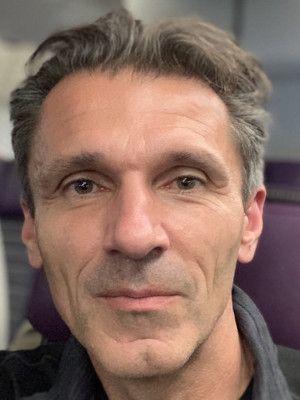
Adrian Borsa
Adrian Borsa is an associate professor at the Scripps Institution of Oceanography and director of the Institute of Geophysics and Planetary Physics. His research describes how Earth’s surface deforms at timescales of seconds to decades, and he links observed change to phenomena ranging from earthquakes to climate change. Dr. Borsa’s expertise includes the collection and analysis of geodetic data from many sources, including permanent and mobile GPS sensors, airborne lidar, and satellite remote sensing. Dr. Borsa took an atypical route to science, beginning with a B.A. in Government, an M.A. in International Relations, and an early career in international business focused on Japan and the United States. He received his PhD from the Scripps Institution of Oceanography in 2005, was posted at the US Geological Survey during his post-doc, and moved to Boulder, CO in 2008 to take a management position within NSF’s EarthScope program. He returned to Scripps and to full-time scientific research in 2012.
Email | Website
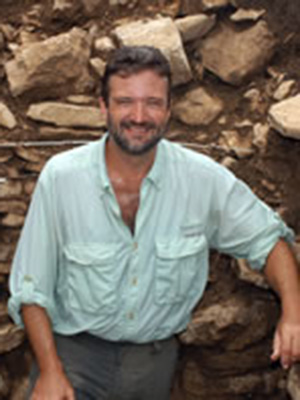
Geoffrey Braswell
Geoffrey Braswell is Associate Professor of Anthropology at UC San Diego. His research interests include settlement pattern studies, geoarchaeology, lithic production and technology, archaeometry, mathematical methods, the emergence of complex society and economic systems, and alternative models of social and political systems. Braswell directs the Mesoamerican Archaeology Laboratory, whose research focuses on the emergence of political and economic complexity among the ancient cultures of Mexico and Central America, particularly the ancient Maya and their neighbors through site excavation, survey, artifact analysis, ethnohistory, iconographic studies, and epigraphy. Braswell’s current research includes intra-regional interaction in the Southern Belize Region, specifically Lubaantun and Nim Li Punit, the focus of the project that Braswell leads within SCMA. Braswell received his doctorate from Tulane University in 1996.
Email | Website
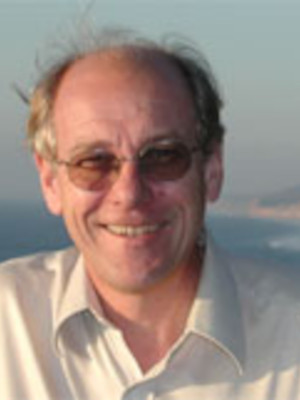
Steven Constable
Cecil H. and Ida M. Green Institute of Geophysics and Planetary Physics
Steven Constable is a distinguished professor of geophysics the Cecil H. and Ida M. Green Institute of Geophysics and Planetary Physics at Scripps Institution of Oceanography, University of California, San Diego.
Constable received a B.S. with first class honors in geology from the University of Western Australia (1979) and a Ph.D. in geophysics from Australian National University (1983). In 1983 he moved to Scripps as a postdoctoral scholar and has since held various positions there.
Over the last two decades, he has led a consortium of academic and industrial partners in the development and application of robust new electromagnetic sensors for offshore petroleum exploration. During this development, his fleet of broadband electromagnetic sensors has been deployed on the seabed more than 1,000 times to map underlying geological structure using variations of both natural (magnetotelluric) and controlled-source electromagnetic fields. Encouraged by the results of this work, in 2001 several major oil companies launched new programs in marine electromagnetic exploration, and several companies now offer services aimed at detecting hydrocarbons using the controlled-source electromagnetic method. A list of current sponsors can be found at http://marineemlab.ucsd.edu/semc.html .
He is a member of the Royal Astronomical Society, the American Geophysical Union, the Society of Exploration Geophysicists, and the European Association of Geoscientists and Engineers.
He received the 2003 G.W. Hohmann Award for Excellence in Applied Electrical Geophysics for outstanding achievement in development of electrical methods for gas or oil exploration. In 2007 the Society of Exploration Geophysicists (SEG) awarded Scripps their Distinguished Achievement Award for its work on applying marine electromagnetic methods to exploration, and in 2016 awarded him the Reginald Fessenden Award as well as making him the SEG/AAPG Distinguished Lecturer. Steve was made an AGU Fellow in 2016.
Email | Website
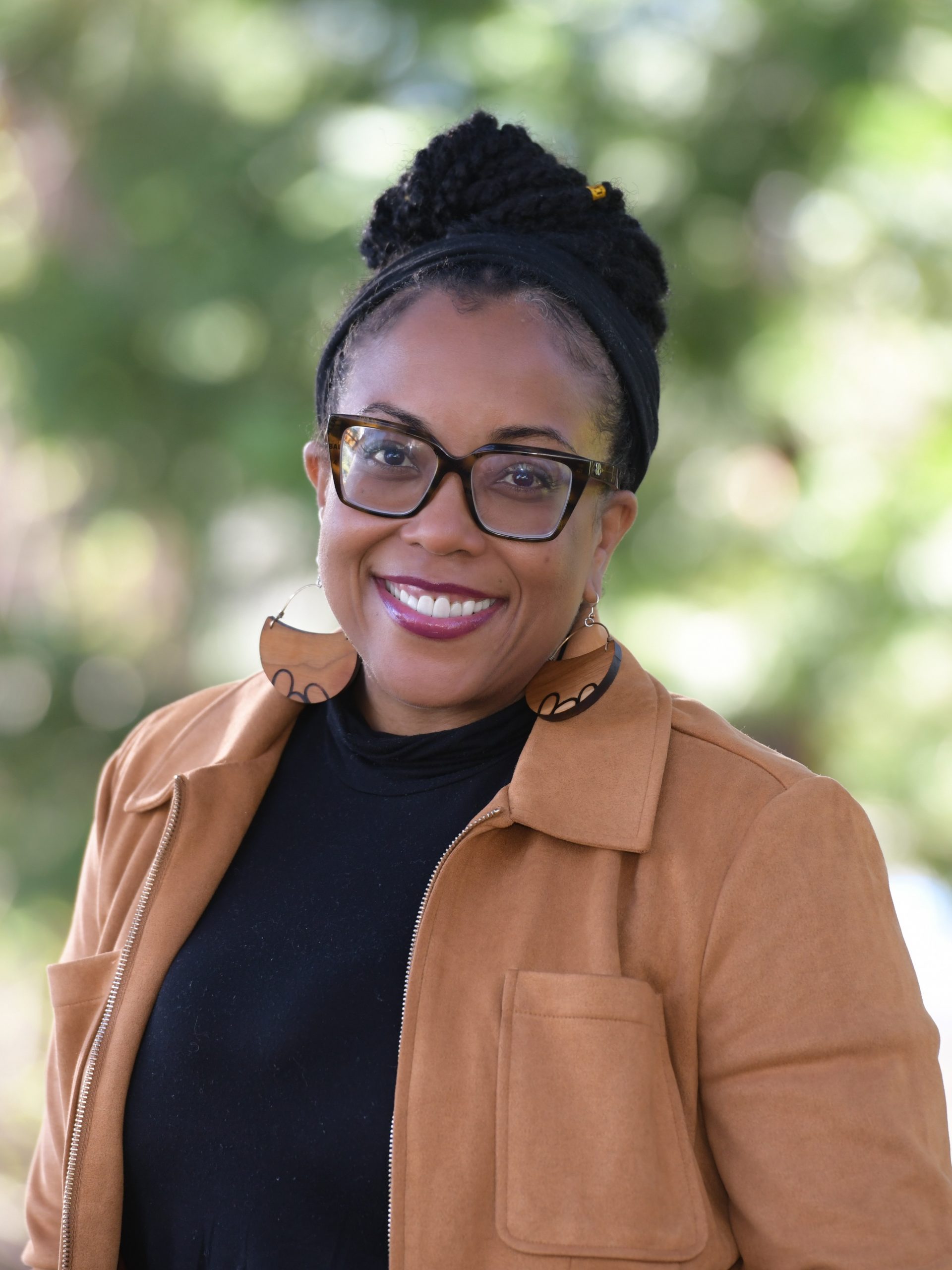
Caroline Collins
Dr. Caroline Collins is an Assistant Professor of Social and Spatial Justice in the Department of Urban Studies and Planning at UC San Diego where she is also affiliated with the Democracy Lab, the Indigenous Futures Institute, and The Scripps Center for Marine Archeology. Her work examines public remembrances of the American West through archival methods, ethnographic study, media production, and public history exhibition. Dr. Collins is currently working with UC Press on her first book manuscript exploring the making of race and place at Old Town San Diego State Historic Park. Her second major research project examines Black folks’ long connections to what is now the U.S. Pacific. Dr. Collins' research has been supported by the National Endowment for the Humanities, the Bylo Chacon Foundation, The Andrew W. Mellon Foundation / US Latino Digital Humanities Center, California Humanities, UCSD Frontiers of Innovation Scholars Program, the UC Consortium for Black Studies in California Project, the Herbert I. Schiller Communication Dissertation Fellowship, and the UC Office of the President. She holds a PhD in Communication from UC San Diego, an MFA in Creative Writing from UC Riverside, and a B.A. in American Literature and Culture from UCLA
Email |
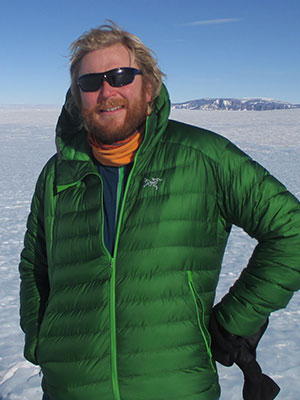
James Day
James Day is Associate Professor of Geochemistry in the Geosciences Research Division of UC San Diego’s Scripps Institution of Oceanography. His research focuses on scientific problems ranging from processes of planetary accretion and differentiation, the links between tectonics and magmatism, and the provenance of natural and anthropogenic artifacts. James uses state-of-the-art geochemical and petrological methods, including radiogenic and stable isotope geochemistry, trace element geochemistry and quantitative petrological tools, and is particularly interested in method development (see: http://sigl.ucsd.edu/). Prior to joining Scripps, James was a post-doctoral fellow at the Universities of Maryland and Tennessee and earned his PhD from the University of Durham in the UK.
Email | Website
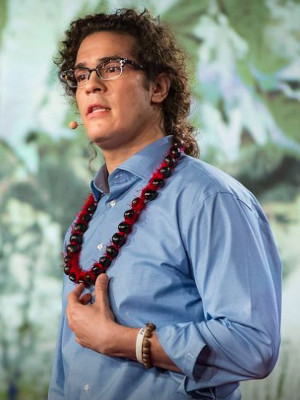
Keolu Fox
Keolu Fox Ph.D., Kānaka Maoli (Native Hawaiian) is an assistant professor at University of California, San Diego, affiliated with the Department of Anthropology, the Global Health Program, the Halıcıoğlu Data Science Institute, the Climate Action Lab, and the Indigenous Futures Lab. He holds a Ph.D. in Genome Sciences from the University of Washington, Seattle (2016). Dr. Fox’s multi-disciplinary research interests include genome sequencing, genome engineering, computational biology, evolutionary genetics, paleogenetics, and Indigenizing biomedical research. His primary research focuses on questions of functionalizing genomics, testing theories of natural selection by editing genes and determining the functions of mutations.Dr. Fox has published numerous articles on human genetics, biomedicine, ancient genomics, and Indigenous data sovereignty, most recently in the New England Journal of Medicine, Nature, and the Proceedings of the Royal Society B.
Dr. Fox is a recipient of grants from numerous organizations including the National Institutes of Health, the National Science Foundation, National Geographic, the American Association for Physical Anthropology, Emerson Collective, the Social Science Research Council and the Massachusetts Institute of Technology, SOLVE Initiative.
Email | Website
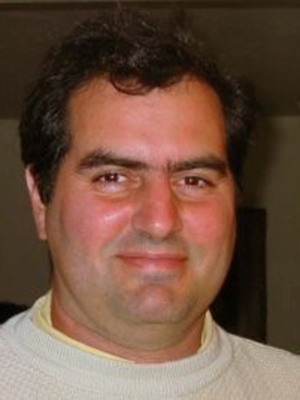
Paul Goldstein
Paul Goldstein is Associate Professor in the Department of Anthropology, which he joined after previously holding a faculty position in Anthropology at Dartmouth College. His teaching and research focus on anthropological archaeology, complex societies, Latin America and Andean South America. Goldstein studies how Tiwanaku civilization, the earliest state-level polity that emerged in the important Lake Titicaca region of the southern Andes, expanded and collapsed (ca. 350-1000 AD). Professor Goldstein has received a variety of research funding, including grants from the National Science Foundation, Wenner-Gren, H. John Heinz III Charitable Trust, as well as Fulbright and Fulbright-Hays grants. He received his Ph.D. in 1989 from the University of Chicago.
Email | Website
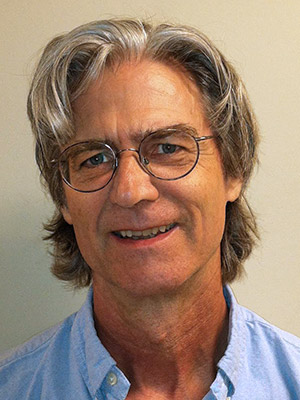
John Hildebrand
John Hildebrand is Professor of Oceanography at the Scripps Institution of Oceanography and Adjunct Professor of Electrical and Computer Engineering at UC San Diego. He is the Chair of the Scripps Applied Ocean Science Curricular Group and a Fellow of the Acoustical Society of America. Hildebrand has interests in marine technology and its application to a broad range of disciplines including archaeology. He has applied geophysical methods to archaeology including seismic reflection and radar imaging, electromagnetic induction and magnetometry. He has studied offshore landscapes, site formation, and palaeoenvironments offshore from southern California. He has also conducted field studies for identification of ceramic raw materials and ceramic sourcing and typology for Patayan ceramics of western Arizona and southern California, and has collaborated in ethnoarchaeological research on ceramic production and use life in the Peruvian Andes.
Email | Website | Archaeological Resume
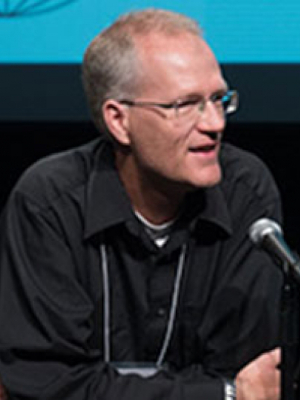
Falko Kuester
Falko Kuester received an MS degree in Mechanical Engineering in 1994 and MS degree in Computer Science and Engineering in 1995 from the University of Michigan, Ann Arbor. In 2001 he received a Ph.D. from the University of California, Davis and currently is the Calit2 Professor for Visualization and Virtual Reality at the University of California, San Diego. Professor Kuester holds appointments as Professor in the Departments of Structural Engineering and Computer Science and Engineering at the Jacobs School of Engineering (JSoE) and serves as the director of the Cultural Heritage Engineering Initiative (CHEI), the Center of Interdisciplinary Science for Art, Architecture and Archaeology (CISA3), the Calit2 Center of Graphics, Visualization and Virtual Reality (GRAVITY) and the DroneLab. Prof. Kuester is also the director of the Bermuda 100 Project.
Email | Website
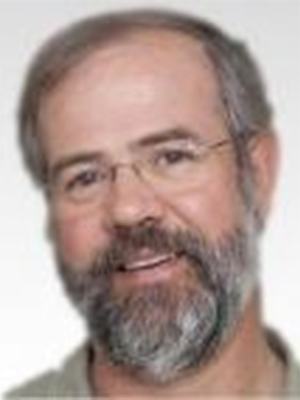
Richard Norris
Richard Norris is Professor of Paleobiology in the Geosciences Research Division of UC San Diego’s Scripps Institution of Oceanography. His research focuses on the evolution of life in the oceans, with particular emphasis on the mechanisms of extinction and speciation of plankton and the processes of assembly of marine ecosystems. He uses ecological, genetic, and biogeographic studies of living plankton and pelagic fish as well as the extensive fossil record of marine plankton and fish preserved in deep sea sediments. Other tools include the use of sediment geochemistry to reconstruct the history of ocean productivity and climate. Part of professor Norris’s research has focused on climate history and evolutionary dynamics during past intervals of extremely warm periods in the Cretaceous, Paleogene and Neogene as analogs for modern global change. He also works on the recent fossil record of reefs and coastal environments to evaluate the impact of human activities on marine and terrestrial ecosystems. During a 2016 sabbatical at Heidelberg University in Germany, he worked on tying the archaeological and historical record of the rise of civilizations around the Mediterranean to the rich ecological evolution of that ocean basin. Prior to joining Scripps, Norris was a research scientist at Woods Hole Oceanographic Institution. Norris earned his Ph.D. in earth and planetary sciences from Harvard University. He has been a foraminifer paleontologist or chief scientist on six expeditions of the Ocean Drilling Program, and served as curator of the Marine Geological Collections at Scripps. I am also academic director of the Science Support Office for the International Ocean Discovery Program.
Email | Website
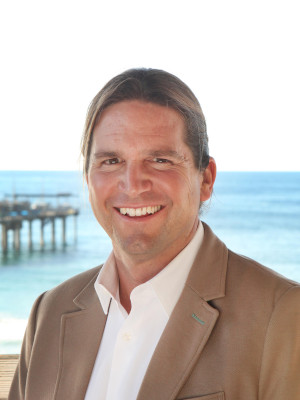
Stuart Sandin
Stuart Sandin is the Oliver Chair in Marine Biodiversity and Conservation at Scripps Institution of Oceanography, UC San Diego. He is a professor in the Marine Biology Research Division, and he serves as director of the Center for Marine Biodiversity and Conservation. Sandin’s research focuses on community ecology, investigating how organisms interact in complex marine communities. The majority of his work is conducted in tropical coral reef ecosystems of the Pacific and Caribbean. Sandin has coordinated multiple ship- and land-based expeditions to the remote islands of the central and south Pacific Ocean, with much work conducted in the Line Islands archipelago. Sandin has been using this island gradient and others to study the individual and interacting roles that local human activities and oceanographic context play in the fisheries dynamics and general functioning of coral reef ecosystems. The work in the Pacific has led to the development of the 100 Island Challenge research campaign. Born in Los Angeles, Calif., Sandin received a B.S. in ecology, behavior, and evolution from UC San Diego, and a Ph.D. in ecology and evolutionary biology from Princeton University. He was a lecturer and research associate at Princeton before joining Scripps.
Email | Website
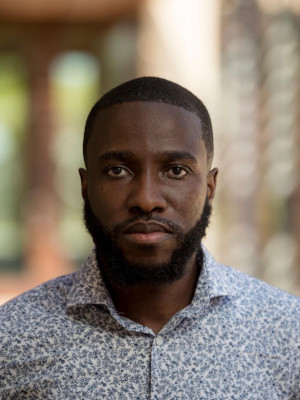
Vashan Wright
Dr. Vashan Wright is an assistant professor at Scripps Institution of Oceanography. He quantifies feedback between tectonics, paleoclimate, fluid flow, and the deformation of granular media deposited within marine, lacustrine, and coastal environments. To conduct this research, he examines granular media using seismic reflection and refraction profiles, sediment cores, aerial imagery, trenches, and x-ray microtomography. He integrates these data with numerical, experimental, and theoretical rock physics, fluid flow, and heat flow models to study tectonics, paleoseismicity, and earthquake-triggered geohazards.
Email | Website
RESEARCH STAFF
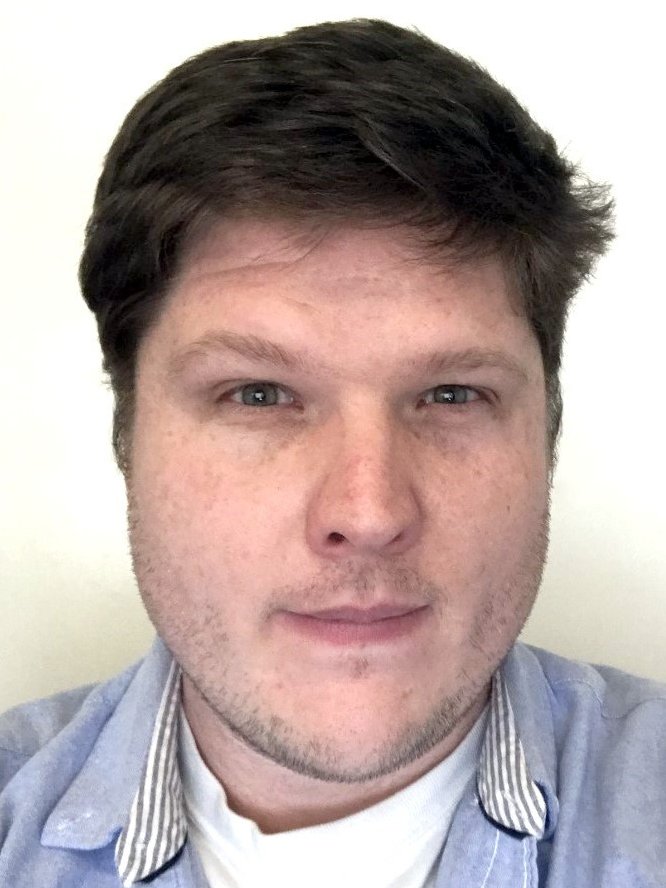
Scott McAvoy
Scott McAvoy is a 3D data expert and archivist specializing in archaeological reconstruction and radiological imagery. He works in the Cultural Heritage Engineering Initiative (CHEI) and Scripps Center of Marine Archaeology at UC San Diego to collect and process large scale imagery and models for visualization, 3D printing, and archiving. Scott collaborates internationally to recreate and document at risk cultural heritage sites, developing archival/visualization systems for high resolution lidar and photogrammetry data through the OpenHeritage3D.com archival platform.
Email | Website
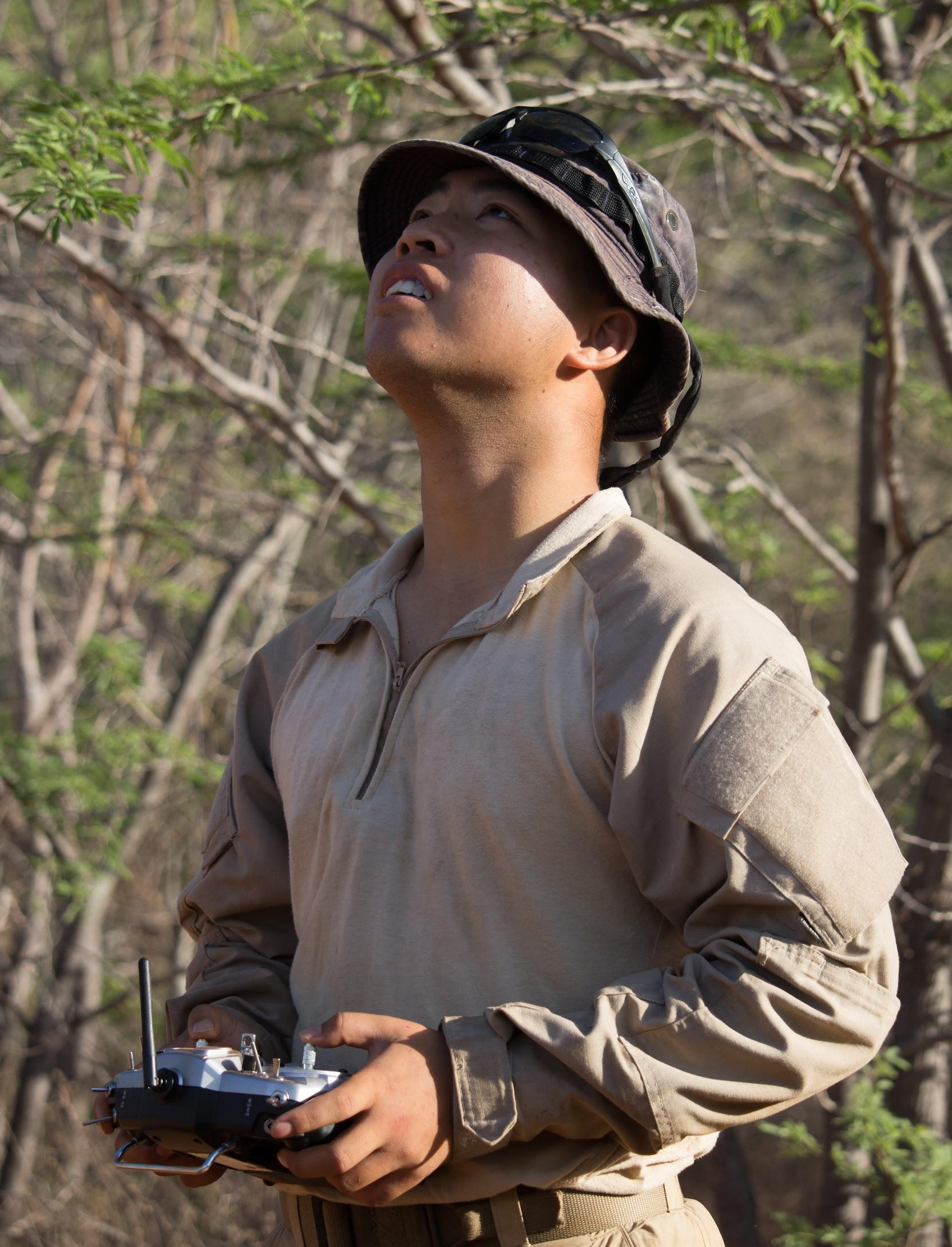
Nathan Hui
Nathan Hui is a Research and Development Engineer at UCSD with a focus in underwater robotics and underwater 3D imaging. He has a Masters of Science in Intelligent Systems, Robotics, and Controls from UCSD, and he is a research engineer with UC San Diego's Engineers for Exploration (E4E), Cultural Heritage Engineering Initiative (CHEI), and Scripps Center for Marine Archaeology (SCMA).
Email | Website
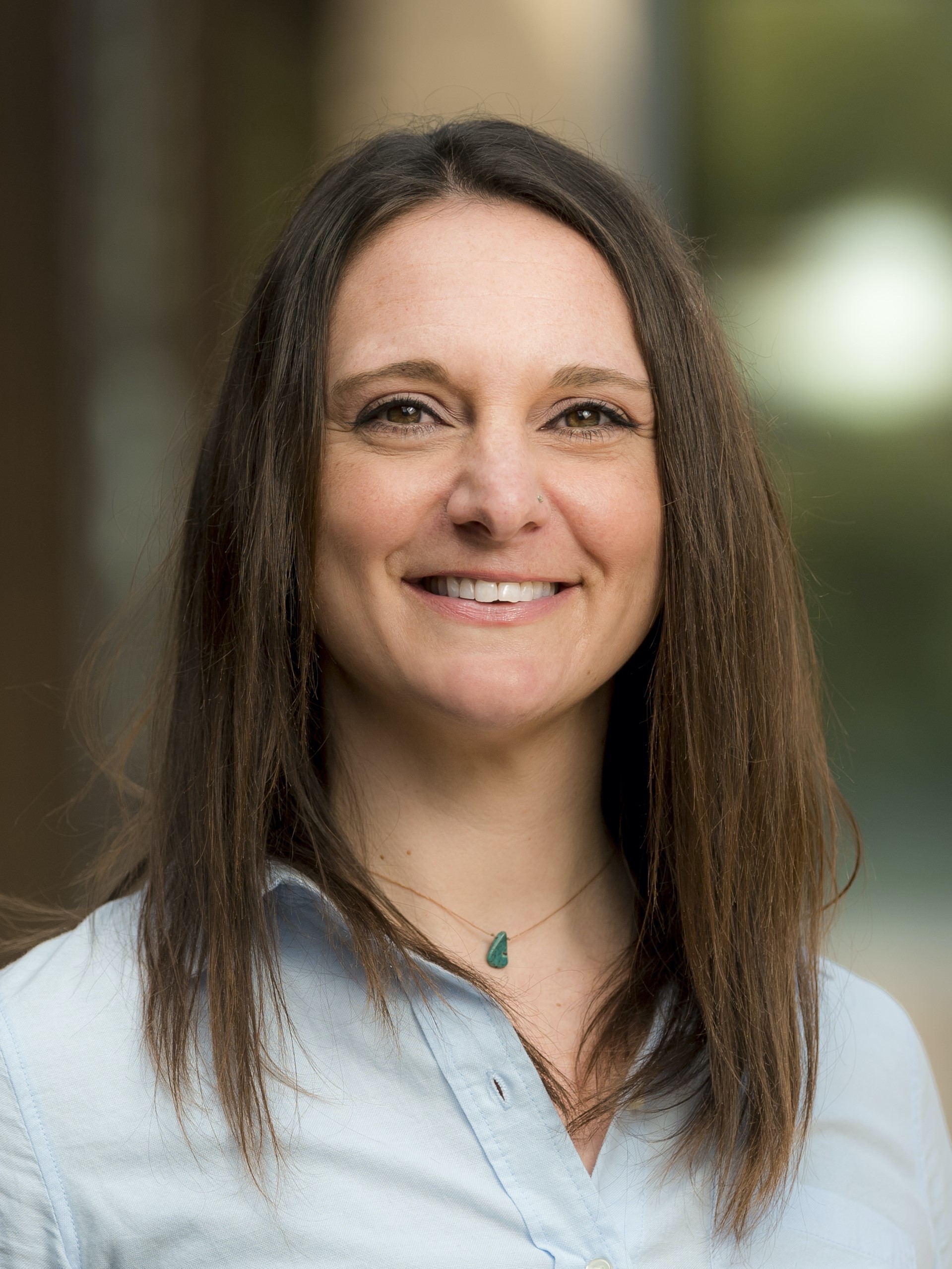
Alex Hangsterfer
Alex Hangsterfer is theGeological Collections manager at the Scripps Institution of Oceanography. Besides overseeing the geological collections, filling sample requests, managing the collections databases and managing collections website, she is also an x-ray technician, operating the Avaatech XRF core scanner. Alex supports multi-disciplinary research projects with students, post-docs, and researchers from academic and governmental institutions across the world. Alex engages in numerous outreach activities each year that include lab tours, in-person & virtual classroom talks, work with Birch Aquarium, San Diego Youth Science and more. She is passionate about communicating science in an understandable way that will draw in the next generation of scientists and excite the general public about the research being done at SIO. Alex has also worked to support the efforts of the GEOPATHS project over the last several years. The project’s goal is to recruit and retain underserved students into the geosciences and engage them in at-sea and classroom/lab research. Alex received her BA from Roger Williams University in Environmental Chemistry and Biology, with a minor in Philosophy. Alex interned and worked at Woods Hole Oceanographic Institution before coming to SIO in 2005 to pursue a graduate degree. She received her Masters from Scripps Institution of Oceanography, with a focus on methane hydrate biogeochemistry.
POSTDOCTORAL RESEARCHERS
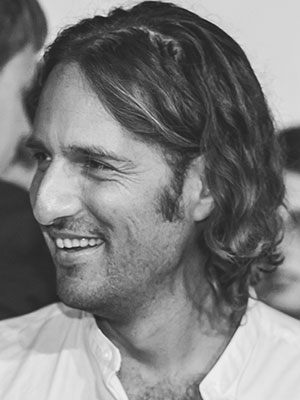
Gilad Shtienberg
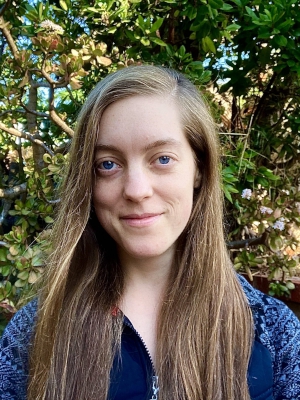
Margaret Morris
Margaret Morris is a graduate student at SIO working on the interface between geophysics, ocean acoustics, and marine archaeology. She hopes to improve marine geophysical acoustic methods for remote sensing of archaeological materials and reconstruction of submerged sites. Working with her advisers, Dr. Isabel Rivera-Collazo and Dr. John Hildebrand, Margaret will focus her efforts in the lab and on the paleoenvironment of coastal California in the San Diego area. Margaret entered SIO's PhD program in 2017 after earning a B.S. in Physics and Mathematics from Brandeis University.
Email | Website
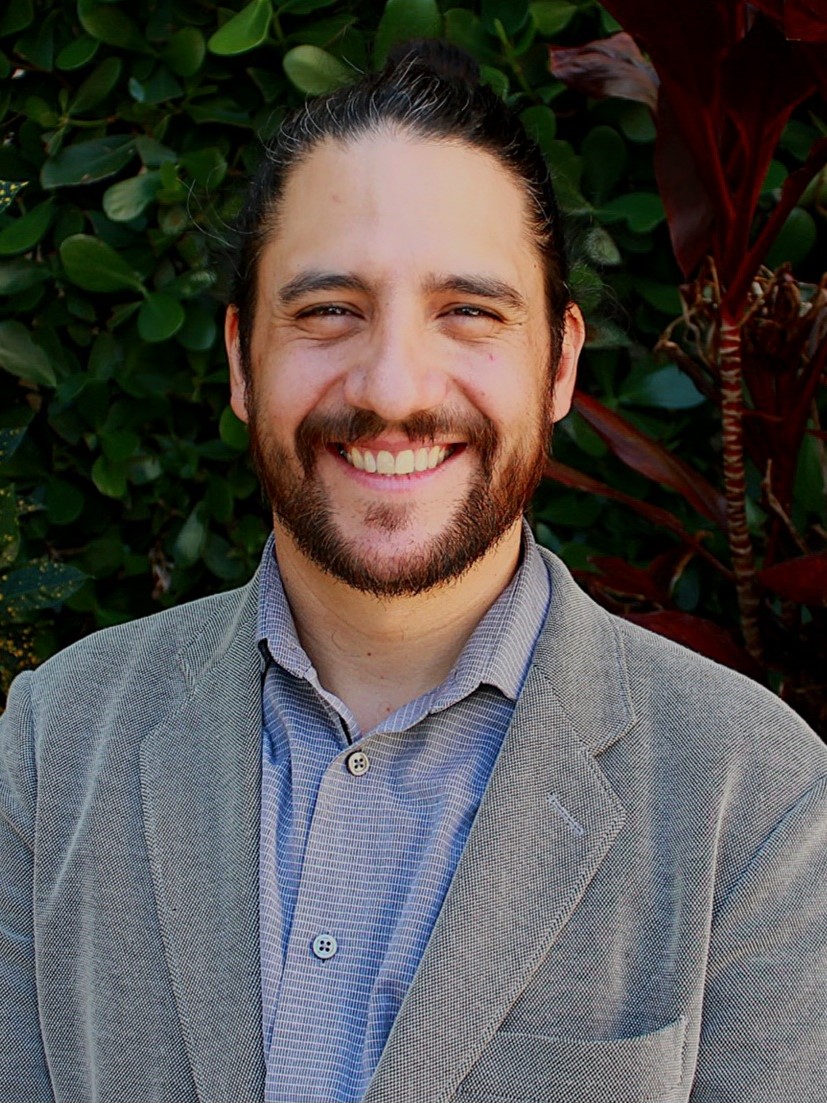
Andres Garzon-Oechsle
Andrés Garzón-Oechsle Ph.D. is an Ecuadorian archaeologist and geoscientist with 15 years of experience in the field. He is a postdoctoral researcher at the Scripps Center for Marine Archaeology and codirector of the Center of Investigations and Museum Salango in Manabí, Ecuador. Andrés’ research focuses on the interface between traditional Archaeology, Remote Sensing, and Climate Change Science to understand how the Manteño civilization of coastal Ecuador responded to changing conditions from El Niño-Southern Oscillation during the major global climate shifts of the Late Holocene and how those resiliency approaches can be used in today’s changing climate. Andrés developed and applied a UAV mobile LiDAR mapping system in the cloud forest of coastal Ecuador to reveal a modified landscape of cultivation terraces, water retention ponds, and water distribution channels. Charcoal frequencies and age-depth modeling of radiocarbon dates of these Manteño landscape modifications revealed that from the 12 th to the 17 th century, the society endured extreme droughts and torrential rains from changing conditions in ENSO during the Medieval Climate Anomaly and the Little Ice Age by creating a modified human landscape in the most resilient region of their territory, the cloud forests of the high elevations of the Chongón-Colonche mountains. Andrés works closely with the Manteño descendant communities of El Pital-Río Blanco, Salango, Agua Blanca, and Picoazá members of the Pueblo Ancestral Manta. Andrés uses Photogrammetry, 3D modeling, 3D prints, and videogames for public archaeological outreach within these communities, museums, and visitors.
Email |
GRADUATE STUDENTS
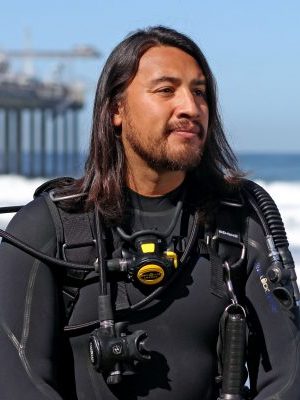
Eric Rodríguez-Delgado
Eric is a maritime archaeologist currently pursuing his PhD at UC San Diego under the supervision of Dra. Isabel Rivera-Collazo. He is currently investigating maritime cultural landscapes in the Caribbean through his knowledge and expertise in maritime archaeology, geoarchaeology, environmental remote sensing, palaeogeographic reconstruction, and geographic information systems. He obtained a B.Phil in Anthropology and History from the University of Pittsburgh in 2012 and a MA in Maritime Archaeology from the University of Southampton in 2014, where his previous master’s dissertation focused on the reconstruction of cultural wetlands in the Humber Estuary. Before returning to pursue his PhD in 2018, he worked as an archaeologist and GIS consultant in the Americas, Italy, Great Britain, Lebanon, and Japan.
Email | Website
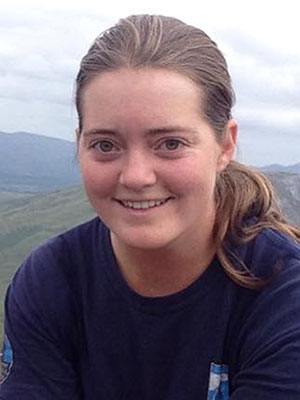
Loren Clark
Loren Clark is pursuing her PhD through the department of Anthropology at UC San Diego under the supervision of Dr. Isabel Rivera-Collazo and Dr. Dominique Rissolo. Her dissertation research focuses on the submerged prehistoric landscapes and human/coastal interaction in Quintana Roo, Mexico, and she works through the Human Ecology Lab, the SCMA, and the Cultural Heritage Engineering Initiative. After completing BA's in Classical Civilizations and Anthropology at Indiana University, Loren continued on to complete a Masters of Science in Maritime Archaeology from the University of Southampton where she focused on submerged prehistoric landscapes, sea-level change, and tectonics along the Albanian coastline. Before deciding to pursue her PhD, Loren spent the majority of her archaeological career in cultural resource management working on a myriad of both land and marine sites.
Email | Website

Jordan Griffin
Jordan Griffin is a Black feminist archaeologist and PhD student in anthropology at UCSD. With a background in artifact preservation, she entered the PhD program to join all of the incredibly cool scholars contributing to Black archaeological knowledge. Jordan is interested in preserving underwater heritage, Black and Indigenous traditional knowledge of climate shifts, and critical ecology. She is also a writer, a wannabe community homesteader, and an advocate of seaweed and decolonizing nature.
Email | Website
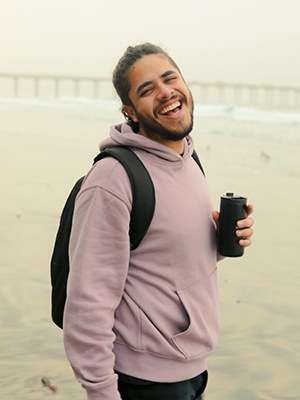
Javier Garcia-Colon
Javier Jomar García-Colón is a PhD student in the archeology and bio-anthropology program at UCSD anthropology department, interested in ideas and perceptions of identity and sense of belonging. To better understand these ideas, he is interested in integrating bio-anthropological and archeological methodologies in order to give light to local community activities during Precolonial Caribbean and its reflection on modern social interactions.
Email | Website
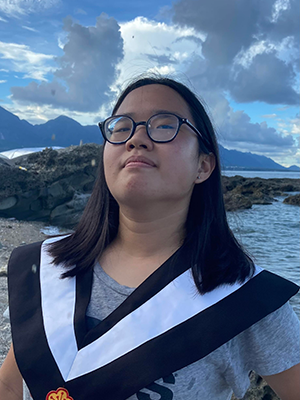
Zi-Qi Chew
Zi-Qi is a first year doctoral student in anthropology at UC San Diego. She hopes to understand the submerged prehistory of mankind by working with marine sediment cores. Currently working with Dr. Jade d'Alpoim Guedes and Dr. Richard Norris, she aims to carry out otolith analysis on marine sediment cores from the Southern California to understand coastal paleolandscape and past fishing behaviors. She joined the UCSD PhD program in 2022 after earning a B.A. in National Taiwan University, and would like to return to work on submerged coasts in Taiwan and Japan after her MA.
Email
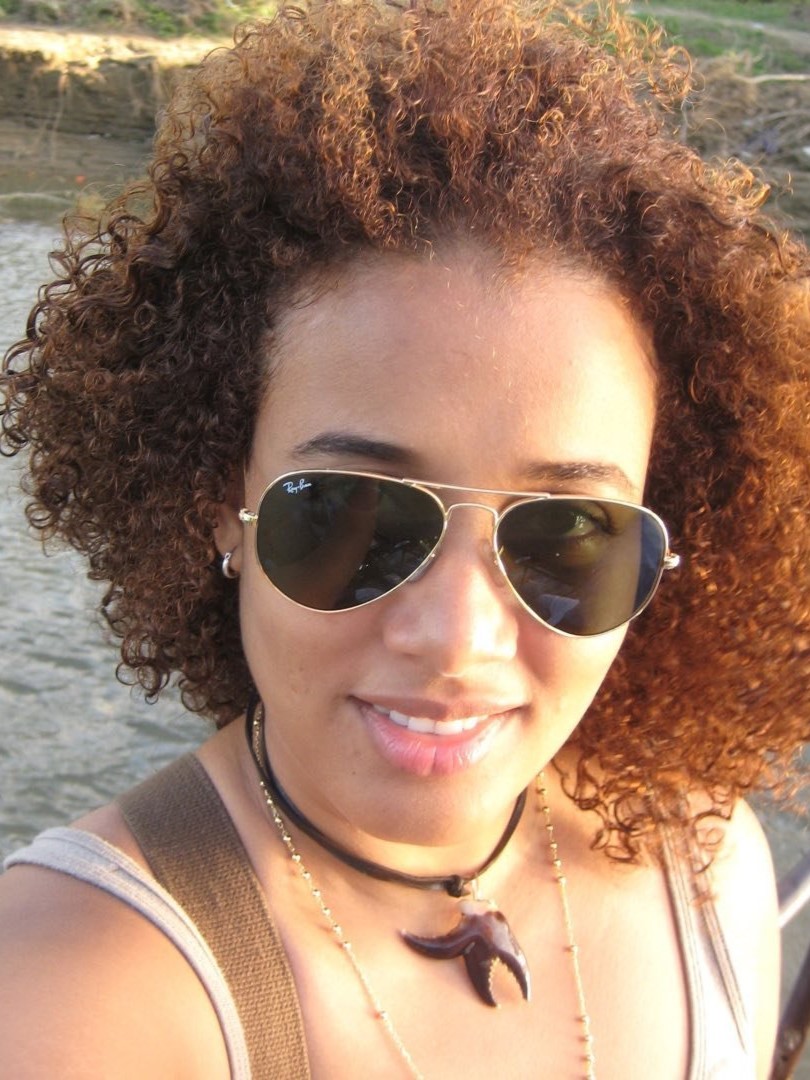
Diana Pena Bastalla
Diana Pena Bastalla is a dedicated archaeologist and educator with a passion for cultural
heritage preservation and education. She is currently pursuing her Ph.D. in Marine Archaeology at the Department of Anthropology, University of California, San Diego, where she is also affiliated with the Human Ecology Lab at Scripps Institution of Oceanography and the Scripps Center for Marine Archaeology. Her doctoral research in marine archaeology focuses on community engagement and preservation of coastal and submerged cultural materials. She is currently working as a member of UNESCO's Scientific and Technical Advisory Body (STAB) in the Dominican Republic as well as collaborating on multiple projects in the Caribbean. This work builds upon her Master's in Archaeological Studies from the University of Glasgow, UK, and her Advanced Degree in Social Studies Education from CUNY Lehman College, New York.
Email |
VISITING RESEARCHERS AND ALUMNI
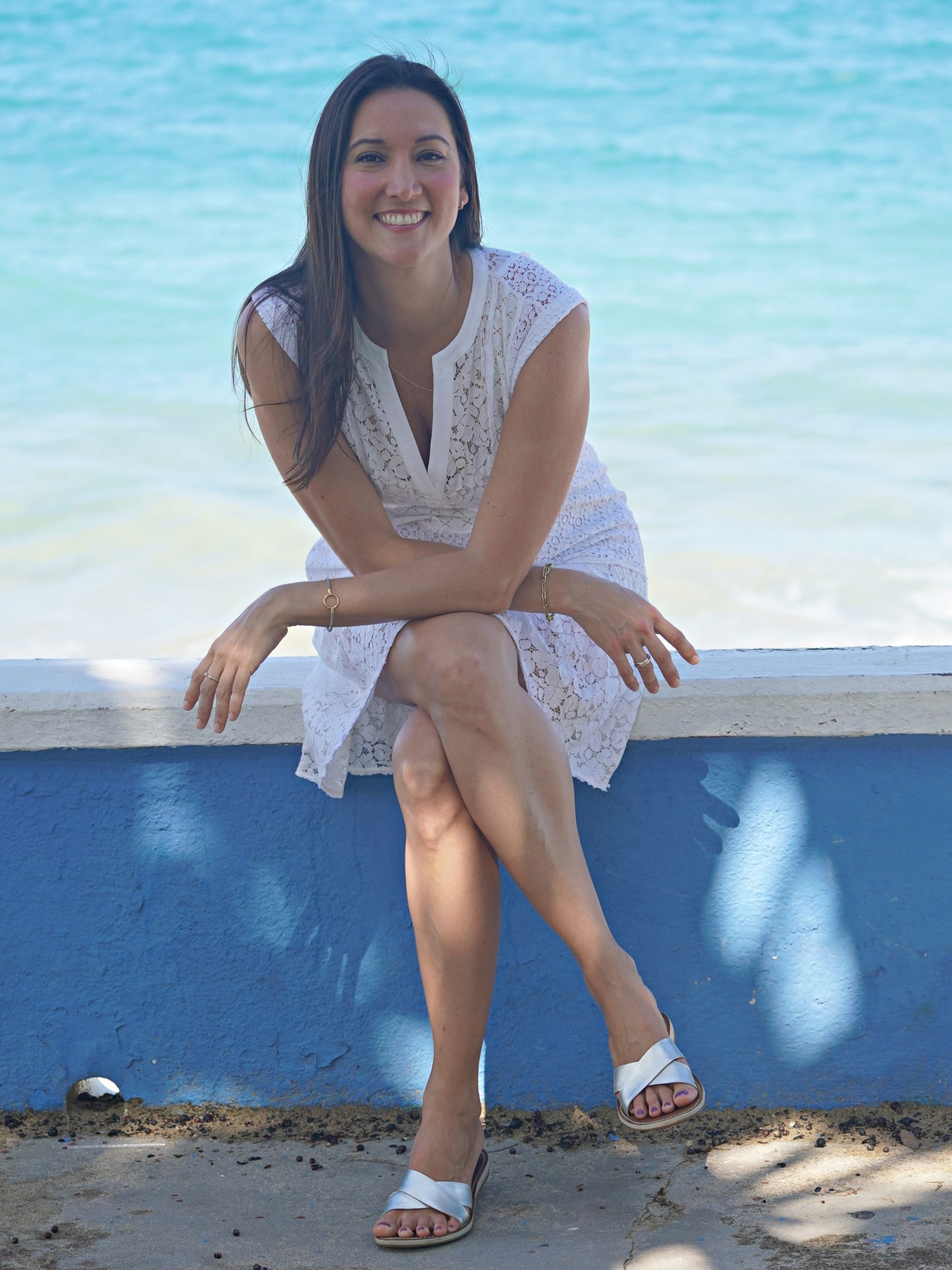
Antares Ramos-Alvarez
Dr. Antares Ramos-Álvarez is a social entrepreneur and environmental conservation strategist with over 20 years of experience in the environmental conservation field. A Puerto Rico (PR) native, she has worked with NGOs as well as local and federal governments in Mexico, Hawaii, and the Caribbean. Antares has a BA in Psychology from Yale University, an MSc in Geography focused on biodiversity, conservation and management of natural resources, and a DPhil in Zoology where she carried out an interdisciplinary study that culminated in policy recommendations for PR’s ornamental fishery, both from the University of Oxford. She has presented in local and international science and management forums on interdisciplinary approaches to marine and coastal resource conservation and management. Her work has focused on coastal zone management, marine protected areas, social sciences, marine resources assessment, interagency and multi-sector collaboration, disaster recovery and climate change issues. She has led multi-sectoral teams in land and coral reef management and conservation efforts, from both federal and nonprofit roles. In October 2021, she co-founded Sail for Reefs, Inc., a nonprofit that aims to provide a bridge between water-based sports and the conservation of marine resources, mainly coral reefs, through education, interaction with the ocean (to help lose island-wide fear towards it) and habitat restoration work. She is currently leading the efforts to establish Puerto Rico’s first urban land based coral nursery. She is the Executive Director and Chief Scientist of the organization, always looking to grow the coral conservation capacity for the island and build collaboration between unlikely allies.
Email |
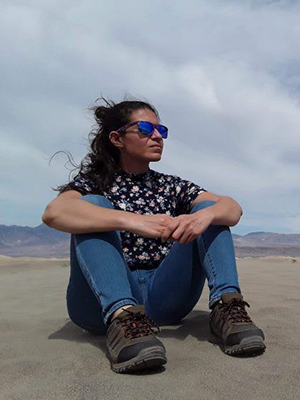
Mariela Declet-Perez
Dr. Mariela Declet-Perez is an environmental and maritime archaeologist who graduated with her doctorate in Summer 2024. Her research with the SCMA explored human ecodynamics with an emphasis in human adaptation to catastrophic events (i.e. hurricanes, tsunamis, earthquakes). She used techniques from paleoclimatology, geoarchaeology, zooarchaeology and integrates current local knowledge of local communities to create a reconstruction of past marine ecosystems and climate conditions. She was a researcher in the Scripps Center for Marine Archaeology, Geoarchaeology Lab at UCSD, and the Laboratory for Environmental Archaeology at the University of Puerto Rico. She continues to do research in Puerto Rico in collaboration with the SCMA.
Email | Website
PREVIOUS DIRECTORS
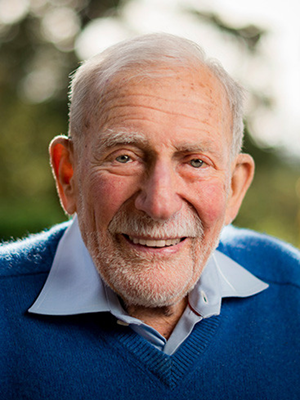
Walter Munk
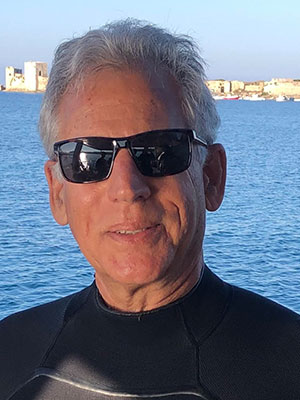
Tom Levy
Tom Levy is Distinguished Professor of Anthropology and Director of the Center for Cyber-Archaeology and Sustainability (CCAS) in the Qualcomm Institute. He holds the Norma Kershaw Chair in the Archaeology of Ancient Israel and Neighboring Lands at UC San Diego, and is a member of the Jewish Studies Program. Elected to the American Academy of Arts and Sciences, Levy is a Levantine field archaeologist with interests in the role of technology, especially early mining and metallurgy, on social evolution from the beginnings of sedentism and the domestication of plants and animals in the Pre-Pottery Neolithic period (ca. 7500 BCE) to the rise of the first historic Levantine state-level societies in the Iron Age (ca. 1200 – 500 BCE). A Fellow of the Explorers Club, Levy won the 2011 Lowell Thomas Award for “Exploring the World’s Greatest Mysteries.” Levy has been the principal investigator of many interdisciplinary archaeological field projects in Israel and Jordan that have been funded by the National Geographic Society, National Endowment for the Humanities, National Science Foundation, and other organizations. He also conducts ethnoarchaeological research in India. Professor Levy directs the UC San Diego Levantine and Cyber-Archaeology Laboratory, and he was recently elected Chair of the Committee on Archaeological Policy (CAP) of the American Schools of Oriental Research (ASOR) and a member of the European Academy of Sciences and Arts. He is the Principal Investigator on the $1 million, two-year UCOP Catalyst grant for At-Risk World Heritage and the Digital Humanities.
Email | Website

John Hildebrand
John Hildebrand is Professor of Oceanography at the Scripps Institution of Oceanography and Adjunct Professor of Electrical and Computer Engineering at UC San Diego. He is the Chair of the Scripps Applied Ocean Science Curricular Group and a Fellow of the Acoustical Society of America. Hildebrand has interests in marine technology and its application to a broad range of disciplines including archaeology. He has applied geophysical methods to archaeology including seismic reflection and radar imaging, electromagnetic induction and magnetometry. He has studied offshore landscapes, site formation, and palaeoenvironments offshore from southern California. He has also conducted field studies for identification of ceramic raw materials and ceramic sourcing and typology for Patayan ceramics of western Arizona and southern California, and has collaborated in ethnoarchaeological research on ceramic production and use life in the Peruvian Andes.
Email | Website | Archaeological Resume

